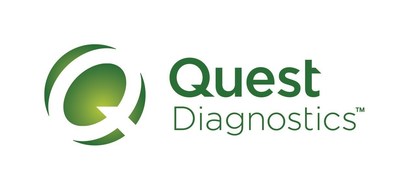Haystack Oncology and Université de Montréal's affiliated hospital research centre, the CRCHUM, to Deploy Haystack MRD™ Technology in Research Study for Metastatic Colorectal Cancer
Rhea-AI Summary
Haystack Oncology, a Quest Diagnostics (NYSE: DGX) company, has announced a research collaboration with Dr. Simon Turcotte at the CRCHUM to evaluate treatment effectiveness in metastatic colorectal cancer (mCRC) patients. The study, named eDetect, will use Haystack MRD™ technology to assess circulating tumor DNA (ctDNA) as an early biological marker of treatment response and disease recurrence.
The collaboration aims to leverage Haystack MRD's exceptional sensitivity in detecting ctDNA to measure treatment response in oligometastatic CRC patients. This research could potentially guide future therapy decisions and improve patient care for mCRC, which is the second leading cause of cancer death in Canada and the United States.
Positive
- Collaboration with CRCHUM to evaluate Haystack MRD™ technology in metastatic colorectal cancer patients
- Potential to improve treatment decisions and patient care in a challenging disease area
- Opportunity to demonstrate the effectiveness of Haystack MRD™ in a high-impact cancer type
Negative
- None.
News Market Reaction 1 Alert
On the day this news was published, DGX declined 2.37%, reflecting a moderate negative market reaction.
Data tracked by StockTitan Argus on the day of publication.
This prospective, observational study, Early Detection of Treatment Failure in Metastatic Colorectal Cancer Patients (eDetect), will use Haystack MRD to assess circulating tumor DNA (ctDNA) as an early biological marker of treatment response and disease recurrence in patients with mCRC undergoing systemic treatment and liver surgery with curative intent. Haystack MRD is a blood-based liquid biopsy test that measures ctDNA shed into circulation by solid tumors in order to identify residual, recurrent, or resistant cancer, at the earliest possible stage.
"Our collaboration with the CRCHUM presents a valuable opportunity to leverage the performance of our Haystack MRD technology in a population of mCRC patients for whom cure is possible," said Dan Edelstein, Vice President and General Manager of Haystack Oncology. "Designed for detecting ctDNA with exceptional sensitivity, Haystack MRD is well-suited to measure treatment response in oligometastatic CRC patients to better understand how ctDNA can guide the sequence and intensity of therapy in the future."
Université de
"mCRC is a challenging disease in need of improved biomarkers to guide optimal patient care," said Dr. Simon Turcotte, hepatopancreatobiliary surgeon and scientist at the CRCHUM, also principal investigator of the eDetect study. "By teaming up with Haystack, we will be able to understand the best use of the MRD technology to inform treatment decisions. This will guide the design of future interventional trials to assess impact on patient survival."
Colorectal cancer is the second leading cause of cancer death in
Metastases are the primary cause of colorectal cancer-related mortality, with the liver being the most frequent site for metastasis, followed by the lung. Patients presenting with metastases confined to the liver represent a unique clinical opportunity to pursue surgery with intent to cure. However, even after surgery with no evidence of residual tumor by medical imaging,
About Haystack Oncology
Haystack Oncology represents the culmination of over 20 years of collaboration to advance technical and clinical development in liquid biopsy technologies by cancer genomics pioneers at Johns Hopkins School of Medicine. The company, a wholly owned subsidiary of Quest Diagnostics, developed Haystack MRD™, a next generation tumor-informed approach for the measurement of minimal residual disease. Haystack MRD uses an error-corrected ctDNA technology to detect down to one ctDNA molecule in a million normal DNA molecules. Haystack Oncology works with biopharmaceutical companies to accelerate and better inform clinical development programs and advance important therapeutics to global markets, from early phase clinical development to companion diagnostics. Learn more at haystackmrd.com.
About Quest Diagnostics
Quest Diagnostics works across the healthcare ecosystem to create a healthier world, one life at a time. We provide diagnostic insights from the results of our laboratory testing to empower people, physicians and organizations to take action to improve health outcomes. Derived from one of the world's largest databases of deidentified clinical lab results, Quest's diagnostic insights reveal new avenues to identify and treat disease, inspire healthy behaviors and improve healthcare management. Quest Diagnostics annually serves one in three adult Americans and half the physicians and hospitals in
About Université de
Université de
1 2023 Colorectal Cancer Statistics | Canadian Cancer Society
2
3 Shin AE, Giancotti FG, Rustgi AK. Metastatic colorectal cancer: mechanisms and emerging therapeutics. Trends Pharmacol Sci. 2023 Apr;44(4):222-236. doi: 10.1016/j.tips.2023.01.003. Epub 2023 Feb 23. PMID: 36828759; PMCID: PMC10365888.
![]() View original content to download multimedia:https://www.prnewswire.com/news-releases/haystack-oncology-and-universite-de-montreals-affiliated-hospital-research-centre-the-crchum-to-deploy-haystack-mrd-technology-in-research-study-for-metastatic-colorectal-cancer-302208035.html
View original content to download multimedia:https://www.prnewswire.com/news-releases/haystack-oncology-and-universite-de-montreals-affiliated-hospital-research-centre-the-crchum-to-deploy-haystack-mrd-technology-in-research-study-for-metastatic-colorectal-cancer-302208035.html
SOURCE Quest Diagnostics









